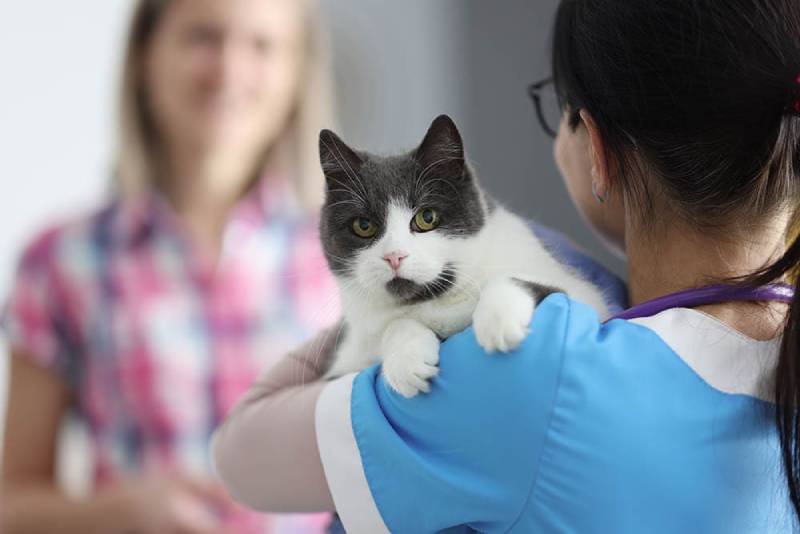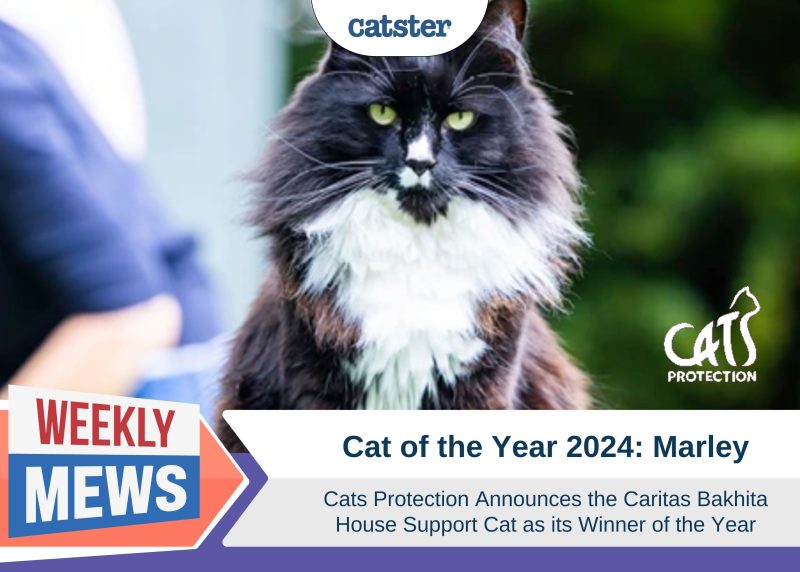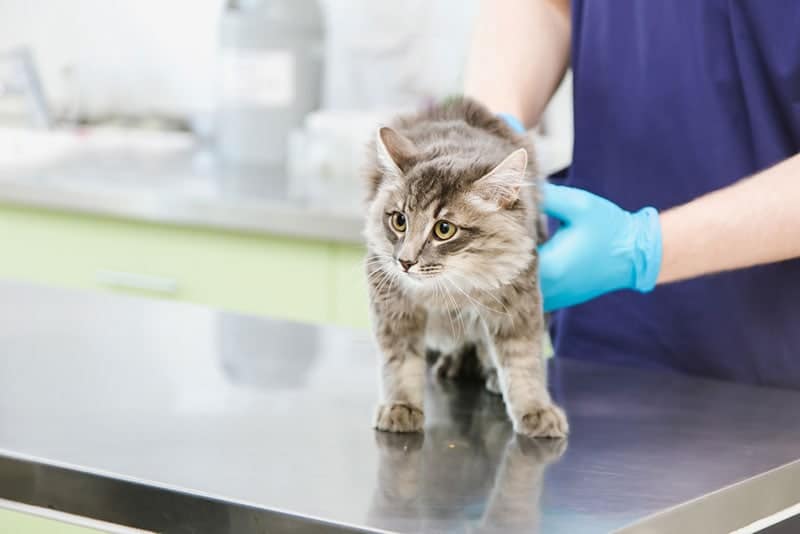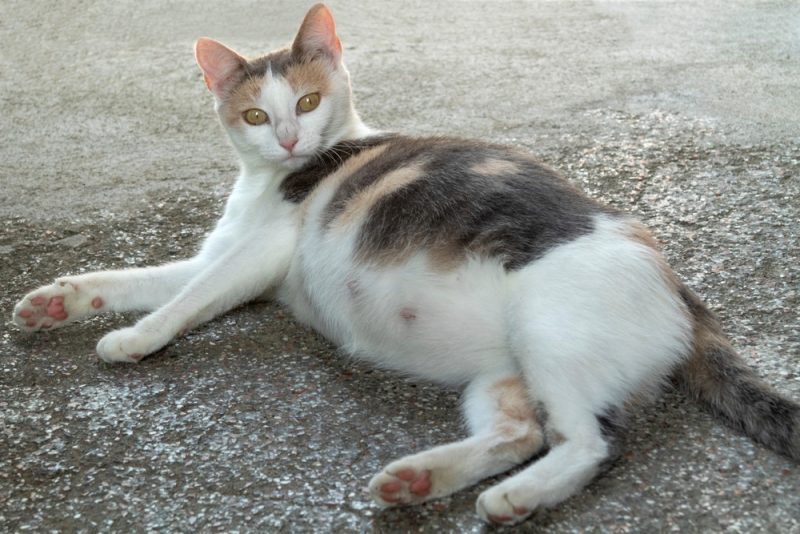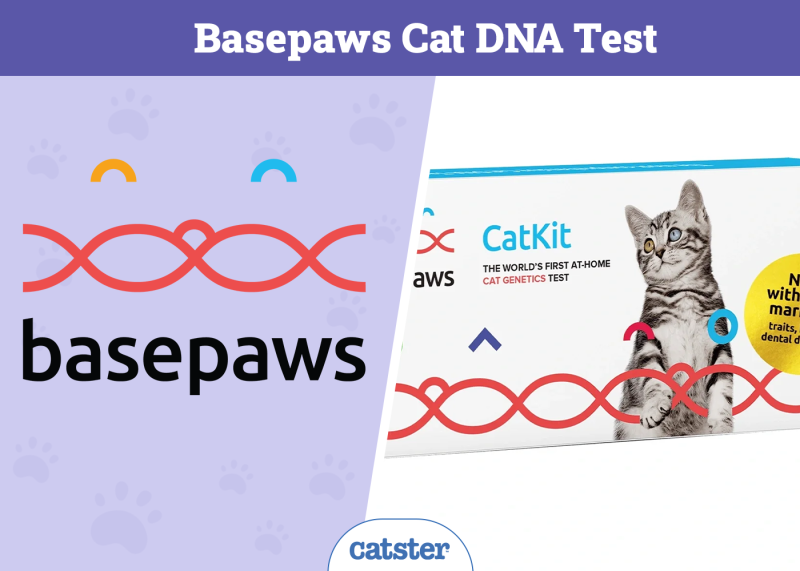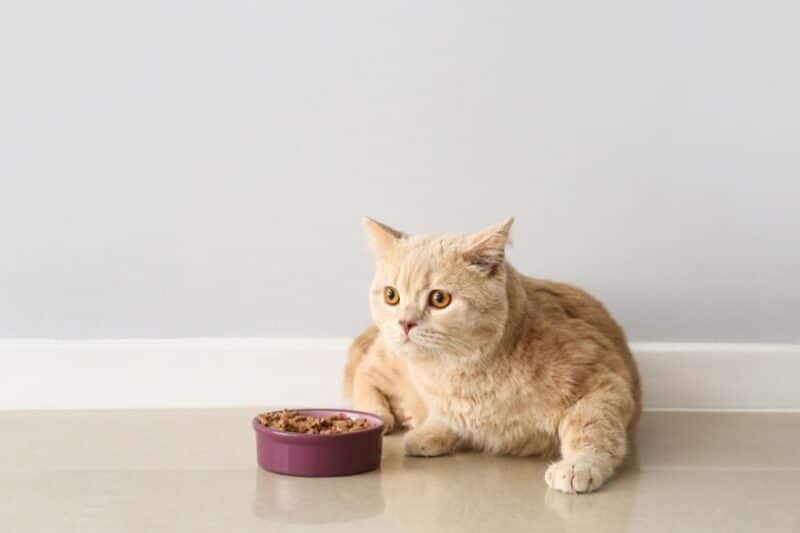Despite your best intentions, you might not be in the same financial position when you first adopted your cat. Paying for your necessities might be difficult, never mind trying to cover medical care for your cat, especially in an emergency.
Fortunately, finding ways to save money on cat health care is possible. If you’re looking for a cheap vet for cats, you’ve come to the right spot. Here are 11 great ways to find an affordable vet for your cat.

The 11 Ways to Find an Affordable Vet for Your Cat
1. Travel to Nearby Cities
If you live in an area with a high cost of living, such as a major city, vet care is likely to be more expensive, just like everything else. Like other businesses, veterinarians set their prices based on the area and what their competitors are charging.
If you’re willing to drive a little further, however, you may find quality, more affordable vets in smaller towns or rural areas nearby.

2. Look for Low-Cost Clinics
For affordable vet care, look for low-cost animal clinics in your area. Many animal shelters operate low-cost spay and neuter programs or provide vouchers to help you pay for the surgery at other hospitals.
Vet schools or large animal hospitals in your area may operate low-cost clinics or partner with organizations that do. Generally, these clinics only cover basic vet services like vaccines and other preventative care. However, you may be able to find a low-cost hospital that also handles emergencies or sick patient visits.
3. Try a Telehealth Vet Service
Another option is a telehealth vet service, where you speak to a certified veterinarian online instead of going into a physical vet office. These services can be incredibly affordable and convenient, providing you with personalized care and advice without putting your cat through the stress of an in-person vet visit.
If you need to speak with a vet but can't get to one, head over to PangoVet. It's an online service where you can talk to a vet online and get the advice you need for your pet — all at an affordable price!

4. Timing Is Everything
Many vets have discounts or specials at certain times of the year. For example, February is usually dental health month, and many clinics offer discounts on pet dental care. Other vets may provide low-cost vaccine clinics throughout the year.
If you’re struggling to afford vet care, it might be worth waiting a few months until you can get the same service at a lower price. Of course, you can never predict emergencies, so it is more of an option for cheaper preventative care.

5. Consider a Wellness Plan
Some veterinarians or pet insurance companies have wellness plans that can make routine vet care for your cat more affordable. Typically, the plans ask you to pay a yearly or monthly fee to cover a pre-determined amount of your cat’s preventative care.
The plans usually cover shots, dewormers, and blood tests. Wellness plans can also make budgeting for your cat’s health care easier because you know how much you owe ahead of time. Be sure to do the math before you sign up for a wellness plan to make sure you’re actually saving money by using it.
6. Start a Pet Savings Account
Another option to help you afford your cat’s vet care is to start a pet savings account. When you first get your cat, commit to depositing a set amount each month into a savings account exclusively for medical care.
Of course, you must be disciplined enough not to spend the pet savings account on other things for this option to work. If your cat suffers an emergency before you’ve had time to save much money, you may need other options to pay for care, too.

7. Enroll in Pet Insurance
Maybe you feel confident about paying for your cat’s routine vet care but worry about the cost of emergency visits or managing chronic health conditions. Pet insurance can help make these unplanned circumstances more affordable. While premiums can vary widely, cat pet insurance is usually cheaper than it is for dogs.
With dozens of pet insurance plans available, you can shop for the best, most affordable option. To avoid pre-existing conditions, enroll your cat as soon as possible, ideally as a kitten. Keep in mind that most pet insurance plans still require you to pay your bill and submit a claim for reimbursement.
8. Ask About Emergency Assistance Funds
Some vet schools or large animal hospitals maintain emergency assistance charity funds to help pet owners afford unexpected costs. Your local vet may have a similar program, too, funded by donations from other clients.
Shelters and rescue groups sometimes operate emergency funds, and several nationwide groups offer financial assistance for pet owners, too. Pet Help Finder or Best Friends Financial Aid for Pets can help you find options in your state.
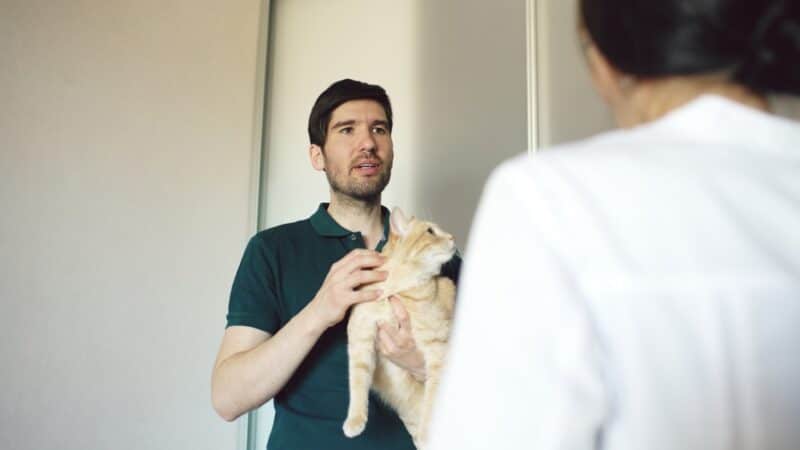
9. Consider Third-Party Funding
Several companies, such as Care Credit and Scratch Pay, provide third-party payment options to help you afford vet care for your cat. You can ask if your veterinarian accepts one of these choices or has additional payment plan options available for you.
Make sure you pay attention to the terms of any healthcare credit card or loan you use to cover your cat’s vet bills. Many have low or no-interest repayments, but only if you pay off the balance in a specific amount of time.
10. Shop Around for Medications
To help you afford your cat’s medication, ask if your vet will give you a written prescription so you can shop around for the best prices. Online pet pharmacies may be able to offer medications at a lower price than your vet’s office.
Pharmacy discount cards that include pets may also be available.

11. Don’t Neglect Preventative Care
Unfortunately, cat owners are often more likely than dog owners to neglect routine preventative care. Your cat should receive annual or semi-annual wellness visits with your veterinarian.
While this may seem like an unnecessary expense, it can save you money in the long term by catching medical problems early. Most medical conditions are easier and cheaper to treat early in the disease process. Check-ups and screening tests can detect health issues before they become more advanced.

Conclusion
No one wants to worry about their funds when making medical decisions for their cat, but sometimes, it’s unavoidable. These tips can help you find affordable vet care for your cat and minimize your costs as much as possible.
As much as many would love to do so, vets can’t afford to give away care for free and keep doing their jobs for long. Financial stress and the weight of client expectations are two major psychological stressors on veterinarians, already one of the professions at the highest risk of mental health issues. If you’re dealing with the pressure of caring for your cat, try not to take out your stress on your vet.
See Also:
- What to Do if I Can’t Afford a Vet: 5 Tips for People Who Can’t Afford Vet Care
- How to Save Time at the Vet? 11 Vet Approved Tips for Being Efficient at the Vet
Featured Image Credit: H Ko, Shutterstock
